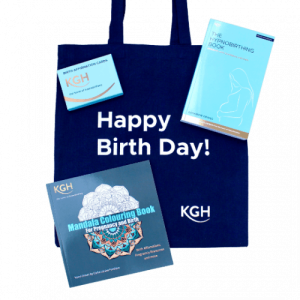
 The second third of pregnancy or the second set of three months are commonly referred to as the second trimester. You may notice that you feel really well and look fabulous as your hair becomes glossy and your skin becomes clear and glowing. People may even begin to remark how you are, ‘blooming.’
The second third of pregnancy or the second set of three months are commonly referred to as the second trimester. You may notice that you feel really well and look fabulous as your hair becomes glossy and your skin becomes clear and glowing. People may even begin to remark how you are, ‘blooming.’
A fully formed baby in the womb is known as a foetus. Between fourteen and fifteen weeks of pregnancy the external genitalia of the baby are more developed, and on scan they can be seen to suck their thumbs.
Foetal movements can be felt quite early, especially by mums who are having a second or subsequent pregnancy. This is because they recognise the sensations. These sensations are often described as fluttering or fizzing. Prior to sixteen weeks this would be associated with embryogenesis but after 16 weeks we know that a foetus can make proper movements. These movements often start like a flutter and as the weeks pass they become more pronounced and easier to detect.
Appointments With Your Midwife in the Second Trimester
If your named midwife is from the NHS then, following your booking appointment, you can expect to be seen on eight occasions until you are forty weeks pregnant, and after that you will be seen weekly until your baby is born. This schedule is in line with National Institute for Clinical Excellence (NICE) guidelines. If you have hired an Independent Midwife then you can expect to be seen every four weeks until you are twenty-eight weeks pregnant, bi-weekly until thirty-six weeks, and then weekly until your baby is born. An Independent Midwife will give you an excellent level of continuity by also attending you when you give birth to your baby, and giving you postnatal home visits over a four week period. Whoever is your midwife, you can expect them to offer you a number of routine observations to monitor the well-being of you and baby.
Within the NHS your second appointment with a midwife will be at sixteen weeks. Your midwife will ask to check your blood pressure and test your urine. She will also discuss your choices in relation to the anomaly scan which is usually done between eighteen and twenty weeks. At the booking appointment you will have been offered a number of screening tests so your midwife will now give you the results. If your iron levels are low she will discuss iron rich foods that you can add to your diet and possibly recommend a supplement in tablet or liquid form. Blood tests to check iron levels are routinely offered for very good reasons. Oxygen in the blood stream attaches itself to iron, and iron acts like a motor car to drive the oxygen around your body. If you have low iron levels then you will not be well oxygenated. The oxygen in your body feeds you first and what is left gets taken to the foetus. So you can see that good iron levels don’t just affect you, but also affect your baby. Good levels of Vitamin C are also important, as without Vitamin C our bodies cannot absorb iron. One of the ways that you can look after you and your baby is by eating a healthy varied diet that is rich in fruit and vegetables.
From seventeen to eighteen weeks of pregnancy fat stores begin to be laid down, but the rapid growth of the early weeks begins to slow. At this time it is usually possible to feel the top of the uterus above the symphysis pubis (pubic bone). As the uterus grows it presses on the bladder and mums find they need to pee more often. Once the uterus has come out of the pelvis it will pass the point where it presses on the bladder so this problem self-resolves.
Pregnancy and Urine Infections
Pregnant women are at a higher risk for getting urine infections. This is due to a hormone called relaxin. This hormone relaxes your muscles and makes your body perfect for birthing as it can be more flexible and stretchy. However, the tube which carries urine from the bladder to outside can also be affected. This is because the muscles are less supportive. This can make the tube kink and if urine sits there it can become stale. If this happens, mums can get a urine infection. If you have a urine infection you will feel like you need to pee more often but when you get to the loo hardly anything comes out. You can feel generally run down. Sometimes it really stings when you pee and you may have some pain in your lower back (either side where your kidneys are). As you can imagine it’s not nice. Another concern is that urine infections can very occasionally make you go into premature labour.
If you think you may have a urine infection you should see your GP the same day for urgent treatment. If you are diagnosed with a urine infection you will be prescribed a course of antibiotics. If you can’t get a GP appointment then you can be seen in the triage of your local maternity unit. This is an area that is run by midwives. It is usually open twenty-four hours a day. You don’t need an appointment but you may want to call first to let them know you are coming or get some advice. This area is for urgent cases that need maternity care straight away. The midwife will give you a check and make an assessment. If she thinks you need to see a doctor she will ask an obstetrician to see you there and then.
The good news is that it is really easy to prevent a urine infection. The important things are to drink plenty of water, go to the loo as soon as you feel you need to, and completely empty your bladder. To make sure your bladder is completely empty you can sit on the loo after you have finished peeing, relax and count to twenty. You may want to take this opportunity to practice your special hypnobirthing breathing. When you have done this just ‘squeeze’ again and see if any more urine comes out – it may just surprise you.
If you think you may a have an infection or feel generally unwell it is important to get treatment promptly. For example if you think you have a urine infection, an unexplained rash or any dental problems. Dental problems are also very common in pregnancy. Pregnant women in the UK are entitled to free dentistry on the NHS so make sure you make good use of this part of the health service.
Your Second Trimester Scan and Development
Anomaly scans are done in the NHS from eighteen to twenty weeks of pregnancy. Like all screening test you can choose whether or not you want to have it. Most parents look forward to this part of their maternity care as it is the time when they will get a picture of the baby. There is however a more serious meaning to this scan. At this scan the sonographer will be checking the different anatomical parts of the baby to make sure they are all present and correct. This includes the length of certain bones, the brain, lungs, kidneys; the vessels in the cord and the placental site as well as the growth of the baby. If any concerns are raised then you will have a chance to discuss them with a midwife or an obstetrician. The vast majority of anomaly scans show us that the pregnancy and the baby are well but you may want to ask someone to come with you and ‘hold your hand.’ Make sure you pick someone who understands and can give you good emotional support.
Vernix is a protective coating that starts to cover the baby’s skin from around nineteen weeks onwards. It is a fantastic moisturiser that helps to protect the baby’s skin.
Sometimes the placenta is found to be low in the uterus. Almost always this is no longer a problem by the time the baby is born. This is because the quadrant of the uterus below the placenta grows considerably in the last part of pregnancy, which pushes the placenta further up and out of the way. You will be offered another scan at thirty-four weeks to check that this has happened.
From twenty-one to twenty-three weeks a scan will show us that the foetus can swallow, so they are already practicing ready to know how to feed when they are born. Their fingernails and toenails will appear, and their eyebrows become more apparent.
A baby born between twenty-four and thirty-six weeks and six days is medically described as premature. In the UK a pregnancy is termed viable from twenty-four weeks onwards. This is because the research shows us that, with the provision of specialist life-saving interventions, a baby will have a good chance of surviving outside its mother’s womb. The older the baby, the better their chance of survival, and every day can make a big difference.
This is why from twenty-four weeks onwards your midwife will start to enquire about your baby’s movements. Feeling your baby move and understanding their patterns is an excellent way for you to monitor your baby’s well-being. From this time onwards it is a good idea if you can tune in to your baby’s patterns. What experiences do you sense they like or dislike? Do they jump when you jump at a loud, sudden noise? Do they wake up and kick when they hear daddy’s voice, or maybe his voice is soothing. Knowing these things will help you to understand their normal patterns. If you would like more information, then discuss this with your midwife. If you have any concerns about your baby’s movements, contact a midwife immediately. She will be able to give you information and support. One simple trick that can help to wake a sleeping baby is as follows:
- Drink a glass of ice cold fluid,
- Lie down on your left side.
If the baby was sleeping, it will generally be woken by the change in temperature and you will start to feel it move. You can also go to your local triage where the midwives will give you and your baby a check-up.
From Twenty Five Weeks and After
From twenty-five to twenty-six weeks your baby will still weigh less than two pounds, and will be developing alveolar (air sacs) in their lungs. At twenty-seven weeks it can open and close its eyes.
When a mother smokes during pregnancy she can expect her baby to weigh on average 200g (8oz) less than other babies. The nicotine makes your baby’s heart beat faster and the reduced oxygen levels means that the baby does not grow as well as babies of mothers who do not smoke.
The sooner you can stop smoking and live in a smoke free environment the better it is for you and for your baby. Breathing in second hand smoke can be even worse for you both. Stopping smoking means you will both have less complications such as pregnancy bleeding and morning sickness. You can also expect to reduce the risk of cot death. Being better oxygenated will make it easier for you and your baby to cope with the exertion of birthing. You are less likely to go into premature labour or have a low birth weight baby (2.5kg/5lb5oz or less). Also your baby is less likely to suffer from illnesses later in life that require hospital treatment, for example, asthma.
If you or any of your friends and family wish to give up smoking a hypnotherapist can often help. Ask you GP to make a referral. You can also contact the NHS Pregnancy Smoking Helpline, 0800 169 9 169.
Rather than have a smoky atmosphere in your home ask your friends and family to smoke outside. When they realise the risks to your pregnancy and the baby they are certain to understand. You should continue to keep your home smoke free after the baby is born. If you are finding it difficult to discuss this issue, you can always say that the midwife has strongly advised these precautions.
At the twenty-five week appointment the midwife will ask to do the usual routine observations (BP and urine check). She will also plot the symphysis fundal height. This is how midwives assess the age, in weeks, of your pregnancy. Most midwives use a combination of feeling with their hands and measuring with a tape measure. Your midwife will also review your anomaly scan. If you need any clarity or have any questions about your scan, then this appointment is a good time to have that discussion. Your midwife will also talk to you about local antenatal education classes.
Lots of families start their hypnobirthing classes even earlier than twenty-five weeks. In fact you can start whenever you are ready. The advantage of starting early is that it will give you plenty of time to practice the techniques and you will enjoy the benefits of hypnobirthing during your pregnancy as well as when you give birth. The breathing exercises are very easy, and practising ahead of time will give you a feeling of confidence as the exercises become second nature. This is important as when you are birthing your baby you will be able to relax and ‘switch off’ as everything just come naturally. Mastering hypnotic relaxation means your mouth will be relaxed and your breathing spontaneous, you will be able to stay in the moment and turn off your ego, (that part of yourself that judges and undermines). The hypnobirthing scripts act as brain training for your subconscious. They help to get you ready to birth your baby into a calm, warm and welcoming environment.
Most importantly you will be making all sorts of subtle lifestyle choices to accommodate your baby, making a space for it in readiness for its arrival. When your baby gets here things are going to be different, so make good use of your time now and enjoy every moment. Make time for you and your partner to do a few special things, and create some lovely memories of this special time together while you grow your baby. Go for some romantic walks and take some long baths – these may become a thing of the past when your baby arrives! Don’t forget to spend some fun time with your family and friends. You’re going to need a supportive network and may even meet some new parents-to-be at your hypnobirthing classes.
Daily Aphorisms
- I feel good when I feel my baby move as I know we are both fit, well and healthy.
- Looking after me makes me an excellent mum, as I am also looking after my baby.
- I am fit and healthy and I look gorgeous.









